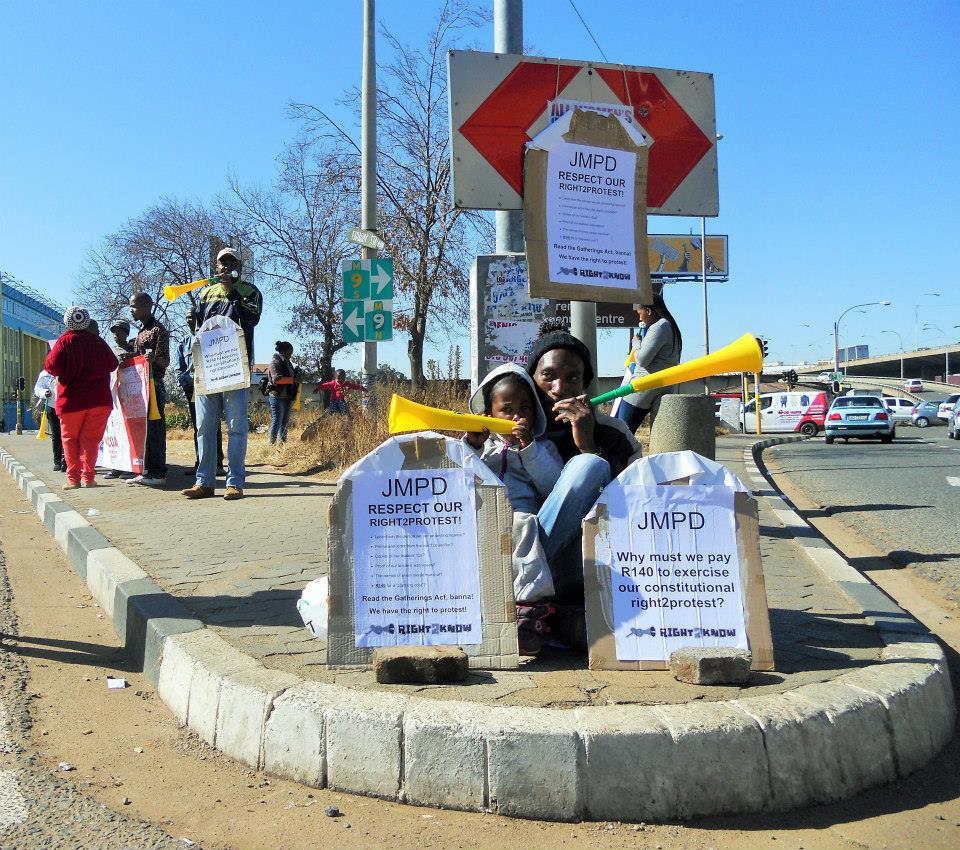Stand Against Surveillance: Fix RICA Now!
This is a joint statement of civil society organisations committed to upholding human rights and seeking social justice in South Africa. It was delivered at the gates of Parliament on Tuesday 26 April 2016.
On 30 March 2016, the United Nations Human Rights Committee issued a strong condemnation of South Africa’s surveillance capabilities, and the law that is meant to regulate them — the Regulation of Interception of Communications and Communication-Related Information Act (RICA).
We agree with the Human Rights Committee: South Africa’s communications surveillance capabilities are untransparent, open to abuse, and a major threat to human rights in South Africa.
Evidence is mounting that these surveillance capabilities have been used to target investigative journalists, political activists, unionists, and interfere in South Africa’s politics and public life.
Many of these abuses are possible because RICA lacks transparency or adequate safeguards, and because the most powerful mass surveillance capabilities are not regulated by RICA at all.
These capabilities potentially affect everyone. By forcing every user in South Africa to link their identity to a particular SIM card, and by forcing all telecommunications providers to store every user’s metadata1 for three to five years, RICA effectively puts every communications user in South Africa under mass, untargeted surveillance.
The right to privacy is a constitutionally-protected right in itself, contained in Section 14 of the Bill of Rights, but it is also central to other rights, including freedom of expression, freedom of association, media freedom and the right to dignity. In a contested constitutional democracy such as South Africa, the right to privacy is crucial to achieving and defending many other rights.
We therefore demand that the Department of Justice & Constitutional Development fix RICA now, through an open and public process.
- Notes:
- A memorandum of specific demands is here.
- The Media Policy & Democracy Project, a joint project of UNISA and the University of Johannesburg, has recently completed a year-long study of surveillance policies in South Africa. Their research and resources are available here.
- MPDP has also produced an activist guide to understanding surveillance, available here.
Endorsed by:
1. Alternative Information Development Centre (AIDC)
2. AmaBhungane Centre for Investigative Journalism
3. Awesome SA
4. Centre for Civil Society, University of KwaZulu-Natal
5. Centre for Environmental Rights
6. Corruption Watch
7. Council for the Advancement of the South African Constitution (CASAC)
8. Democracy Works Foundation
9. Diakonia Council of Churches
10. Environmental Monitoring Group
11. Equal Education
12. Equal Education Law Centre
13. Fossil Free South Africa
14. Freedom of Expression Institute
15. groundWork (Friends of the Earth South Africa)
16. Institute for Justice and Reconciliation (IJR)
17. Media for Justice
18. Media Policy & Democracy Project (MPDP)
19. Media Workers Association of South Africa
20. Ndifuna Ukwazi
21. OpenSecretsZA
22. Operation Khanyisa Movement
23. OWASP Cape Town
24. People Opposing Women Abuse
25. PSAM
26. RAM Network Security Services Pty Ltd
27. Right2Know Campaign
28. Section27
29. Social Justice Coalition
30. Sonke Gender Justice
31. South African Communications Association (SACOMM)
32. STEPS (Social Transformation & Empowerment Projects)
33. Students for Law and Social Justice
34. Sustaining the Wild Coast (SWC)
35. The Governance, Crime and Justice Division of the Institute for Security Studies
36. The Green Connection
37. World Wide Web Foundation
38. United Front
39. Southern African Faith Communities’ Environment Institute
40. Association of Progressive Communications
41. Marikana Support Campaign



